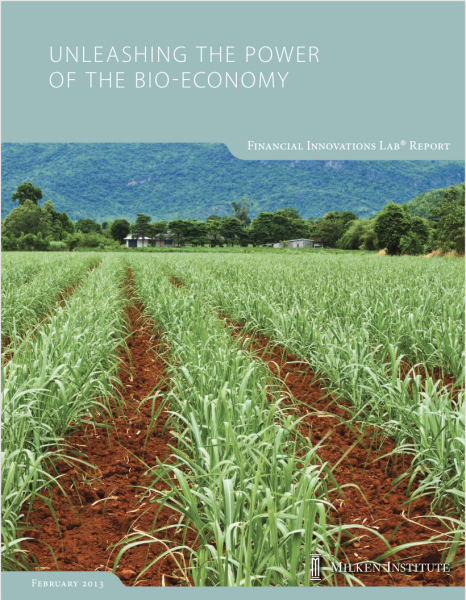
Unleashing the Power of the Bio-Economy
In April 2012, the Milken Institute, with support from the U.S. Department of Agriculture, hosted a Financial Innovations Lab on ideas to spur the industrial side of bio-based alternatives to petrochemicals. Participants included leading scientists, senior government officials, industry executives, institutional investors, and venture capitalists.
In an intensive brainstorming session, participants on all sides agreed that the business case for bio-based products is growing stronger every year. Coca-Cola is investing heavily in “green” bottles. SC Johnson, manufacturer of household cleaning products such as Pledge and Windex, has created its own “Greenlist” to rate the environmental impact of actual and potential ingredients in its products. The company says it has increased the share of “best”-rated compounds over the past decade from 4 percent to 27 percent of its total ingredients.
Lab participants agreed that the United States could replace about 20 percent of petrochemical consumption with bio-based products over the next decade, and in doing so capture a significant portion of the global renewable chemical market. That would require as many as 10 commercial-scale bio-production plants, which would in turn require about $50 billion in capital.5 Given the intense budget pressure in Washington, participants agreed almost all of that money would have to come from private investors. But most saw a need for the government to share some of the financial risk and to spur demand, especially if this new industry can create much needed jobs and economic growth.
View the full report for key takeaways from the Financial Innovations Lab.
